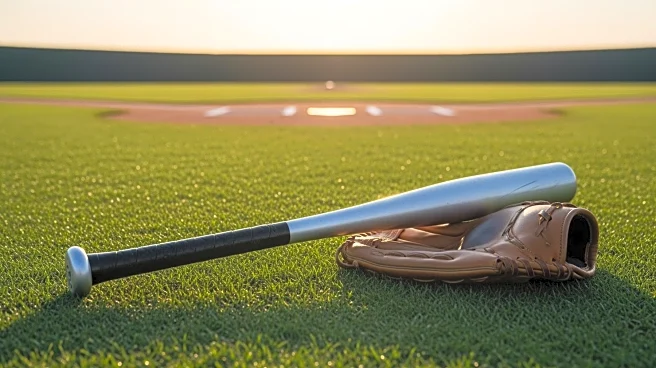What's Happening?
The Toronto Blue Jays have activated star shortstop Bo Bichette for Game 1 of the 2025 MLB World Series, where he will bat cleanup and play second base for the first time since 2019. This move is significant as it marks the first time three second-generation
MLB players—Vladimir Guerrero Jr., Bo Bichette, and Daulton Varsho—have started for the same team. Their fathers, Vladimir Guerrero, Dante Bichette, and Gary Varsho, respectively, were also MLB players. The Blue Jays will face the Los Angeles Dodgers, with rookie pitcher Trey Yesavage starting against Dodgers' Blake Snell, a two-time Cy Young winner. The game will be broadcast on FOX and available for streaming.
Why It's Important?
This development is notable for several reasons. Firstly, the inclusion of Bo Bichette in the lineup strengthens the Blue Jays' batting order, potentially increasing their chances against the formidable Dodgers. The historic aspect of having three second-generation players highlights the evolving nature of MLB, where legacy and family ties are becoming more prominent. This could influence team dynamics and fan engagement, as fans may feel a deeper connection to players with storied family backgrounds. Additionally, the performance of rookie Trey Yesavage against a seasoned Dodgers lineup will be closely watched, as it could set the tone for his future career and the series outcome.
What's Next?
As the series progresses, the performance of both teams will be under scrutiny. The Blue Jays will need to capitalize on their strengthened lineup to gain an advantage in the series. The Dodgers, with their experienced roster, will aim to counter the Blue Jays' strategies. The outcome of Game 1 could influence managerial decisions in subsequent games, such as pitching rotations and batting orders. Fans and analysts will be keenly observing how the second-generation players perform under the pressure of the World Series.
Beyond the Headlines
The presence of second-generation players in the World Series lineup underscores a broader trend in sports where familial legacies are increasingly visible. This could inspire younger athletes from sporting families to pursue professional careers, knowing that their lineage is celebrated. It also raises questions about the role of genetics versus environment in athletic success, potentially sparking discussions in sports science and psychology.














